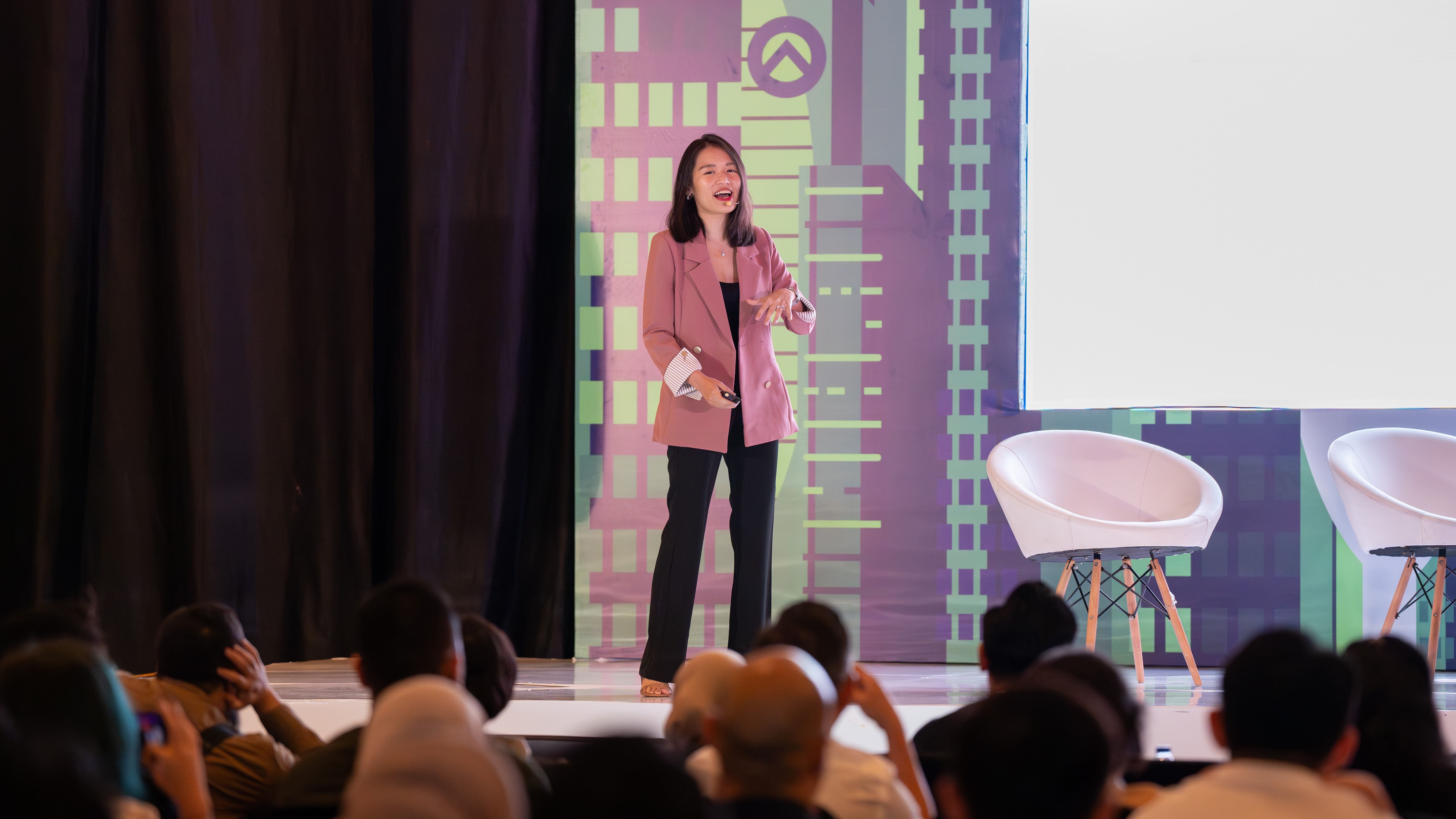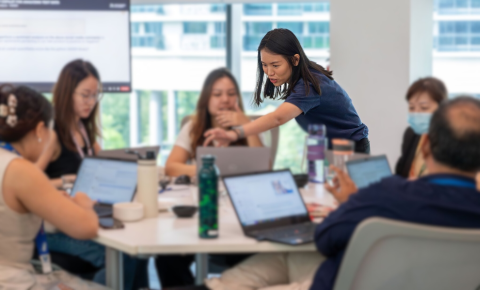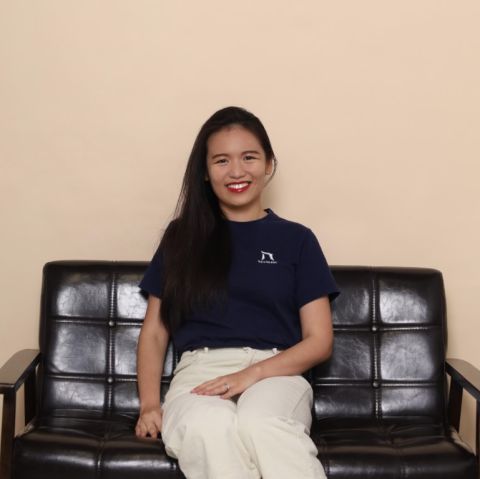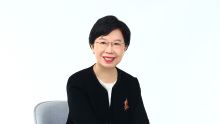
After witnessing promising talent struggle to find their footing in the tech industry, SMU alumna Beh Min Yan decided to stop diagnosing the problem and start building the solution.
For years, Singapore’s tech scene has pulsed with ambition and a drive for innovation. Yet, beneath this flashy surface lies a paradox: while companies seek talent to fuel growth, a generation of bright individuals, armed with academic degrees, seems to lack the practical skills to build something truly innovative.
This disconnect was impossible for Beh Min Yan, an SMU Bachelor of Science (Information Systems) graduate and Co-Founder of Heicoders Academy, to ignore. Her conviction was crystallised after talking to a computer science graduate she was mentoring. The student, who is not from SMU, admitted, “I have a degree, but feel completely lost building anything real”.
"That hit me hard because I was seeing this pattern everywhere," Min Yan recalls.
Recoding tech education
Min Yan saw first-hand the frustration of aspiring developers as well as that of hiring managers, two sides of a chasm that traditional education and coding bootcamps failed to bridge.
This was how SMU’s interactive pedagogy became the cornerstone of tech upskilling institution Heicoders, whereby "learning is not a passive process".
When it came to her own learning journey, Min Yan credits SMU professors who created a supportive environment, adapting their teaching to accommodate different learning paces. This ethos is mirrored in Heicoders' support systems, from mentors to peer study groups.
"We celebrate small wins, normalise the debugging process, and create a community where asking questions is encouraged, not stigmatised," she affirms.
Building for impact
Bolstered by this educational philosophy, Min Yan designed a curriculum that was both welcoming to beginners and rigorous enough for professional roles.
"Most existing education [modes] either scared people away with too much complexity upfront or was so basic that graduates couldn't actually do anything useful," she shares candidly.
"We spent months developing a learning approach that starts with the fundamentals but quickly moves to building real things."

Founded in 2020, Heicoders was immediately confronted by COVID-19. While competitors simply moved online, Heicoders overhauled its curriculum: The team invested in training instructors in online engagement and moved their mentorship programme online to maintain the personalised support that defined their brand.
The true measure of their success, however, lies in the transformations they enable. Min Yan's lights up when she tells the story of Sarah, a marketing professional in her late-thirties who joined Heicoders after a seven-year career break to raise her children.
"When Sarah first approached us, she was refreshingly honest about her fears," she remembers. "She'd never written a line of code… and was convinced she was 'too old' to learn technical skills."
The initial weeks were filled with long hours and countless questions. But, guided by instructors who connected data analysis and with the student’s preexisting expertise, something clicked. Within six months of graduating, Sarah landed a Data Analyst role at an e-commerce company with a 40 per cent salary increase.
While securing a cushy tech job is often the end goal, the real transformation, Min Yan insists, was deeper. "She told me that learning to code fundamentally changed how she approaches problems — she now thinks more systematically and isn't intimidated by complex challenges."
Leading the charge in an AI-fuelled world
Being named one of Singapore's SG100 Women in Tech in 2021, Min Yan views accolades less as a personal achievement and more as a responsibility to "pay it forward". While fortunate to have worked in supportive environments, she is aware of the barriers that still exist for women in tech, from the subtle questioning of their expertise to the lower enrolment of women in advanced technical courses.
"The changes I believe are most needed are systemic," she asserts, advocating for more female leadership and for men to become active allies in driving cultural change.
Her forward-looking leadership is also evident in her response to the industry's latest disruption: Generative AI. While some view it as a threat, Min Yan explains: "The fundamental shift is that coding is becoming more about problem definition, solution architecture, and quality assurance rather than syntax memorisation.”
At Heicoders, students are not just taught to leverage AI tools for productivity, but to double down on skills AI cannot replace: critical thinking, systems design, and user empathy. "AI is good," she cautions, "but it also requires you to be a good thinker to leverage it properly."
The vision for Heicoders is to be more than a coding school; it is to be a "catalyst for Singapore's transformation into a truly inclusive tech ecosystem". From expanding into domains like cybersecurity and trading to building train-and-work programmes, the goal is to create a ripple effect that will reach all corners of the industry.
The SMU Edge
For Heicoders Academy CEO Beh Min Yan, her time at SMU provided a transformative educational toolkit. She credits the university with shaping her entrepreneurial journey:
Collaborative Learning Environment
- SMU's interactive, seminar-style classes instilled the belief that "learning is not a passive process". This environment promotes active debate and fosters a collaborative model.
Applied, Real-World Problem-Solving
- The SMU curriculum encouraged students to "think beyond silos", connecting concepts across business, technology, and social sciences for a holistic mindset.
Developing Lifelong Learning Agility
- Min Yan asserts that "SMU’s pedagogy taught me the value of self-directed learning — a skill that’s now non-negotiable in tech." This mindset of curiosity, adaptability, and ownership continues to shape how she builds learning experiences at Heicoders.

Beh Min Yan, an SMU Bachelor of Science (Information Systems) graduate and Co-Founder of Heicoders Academy.


